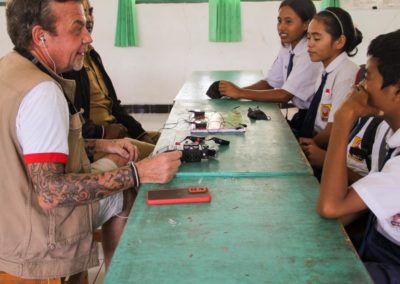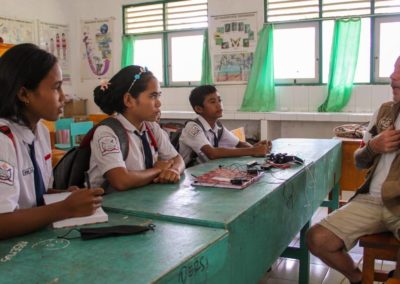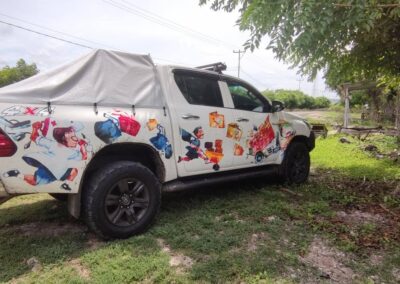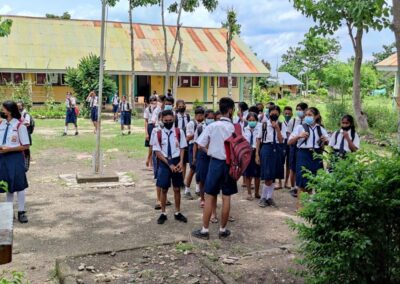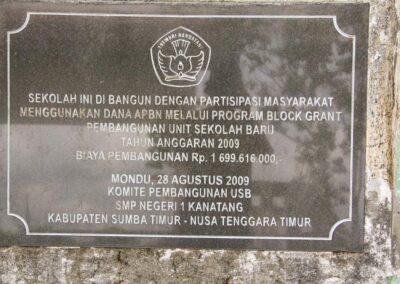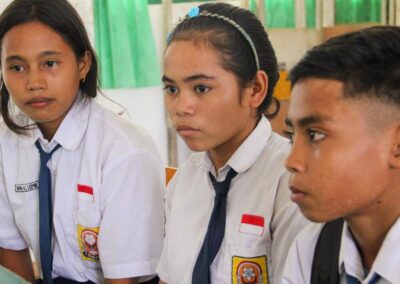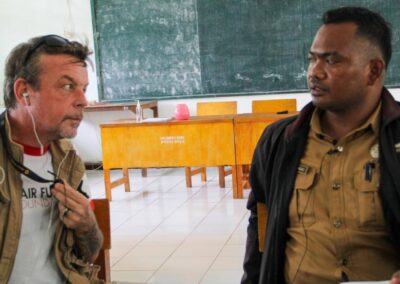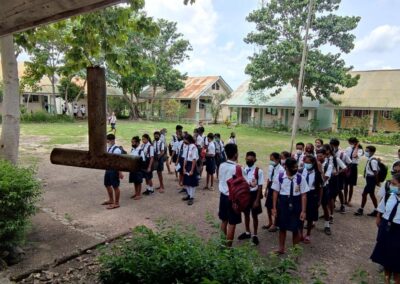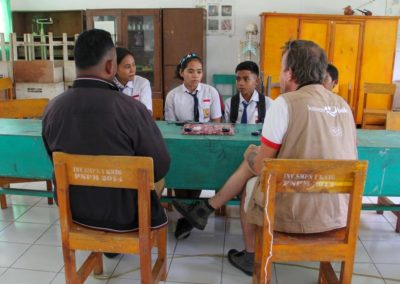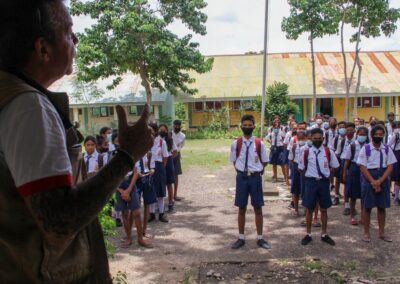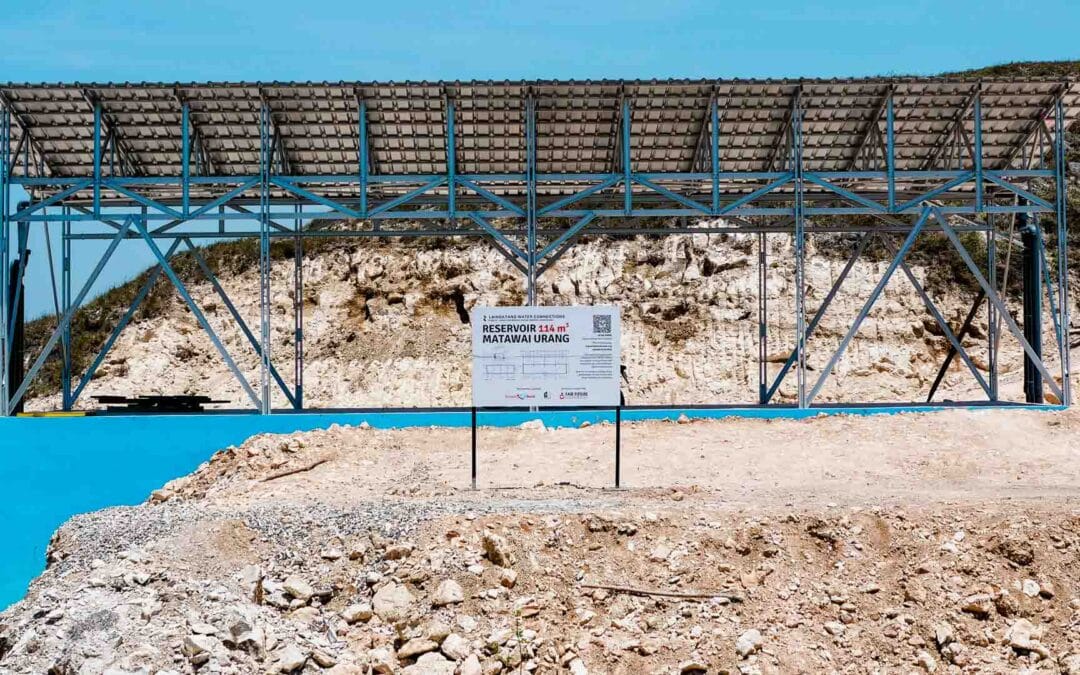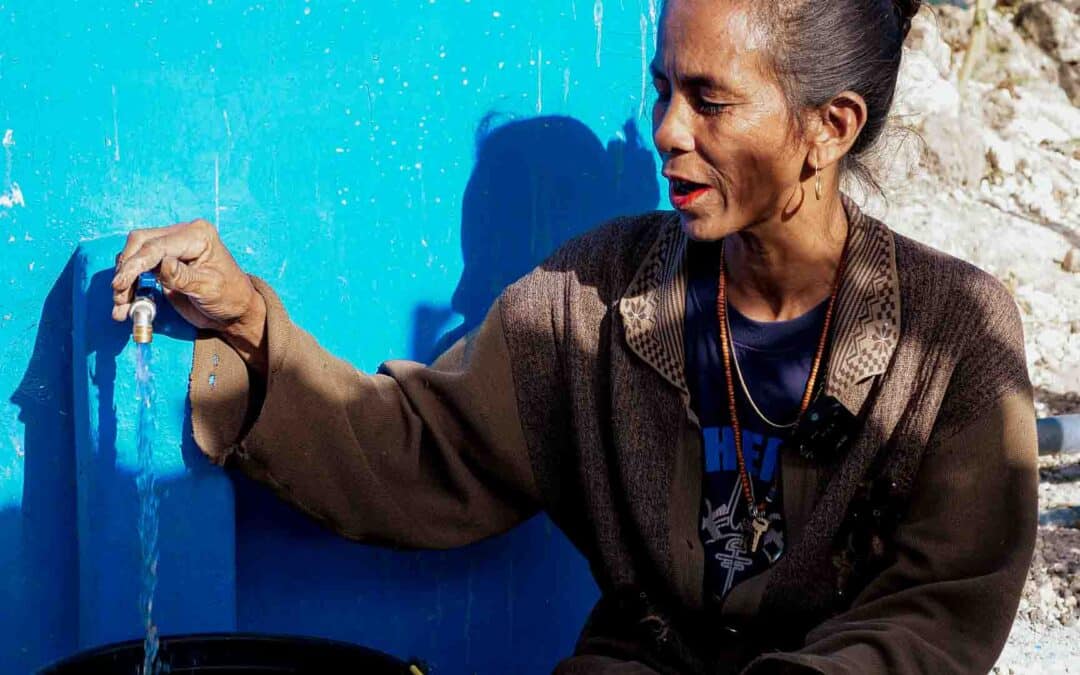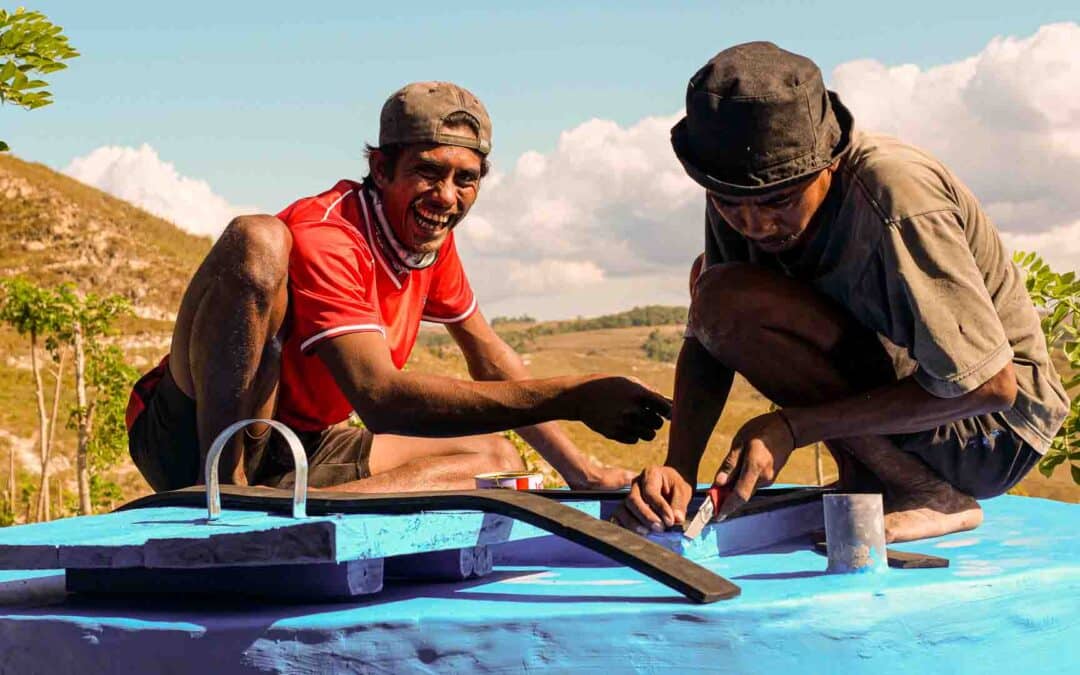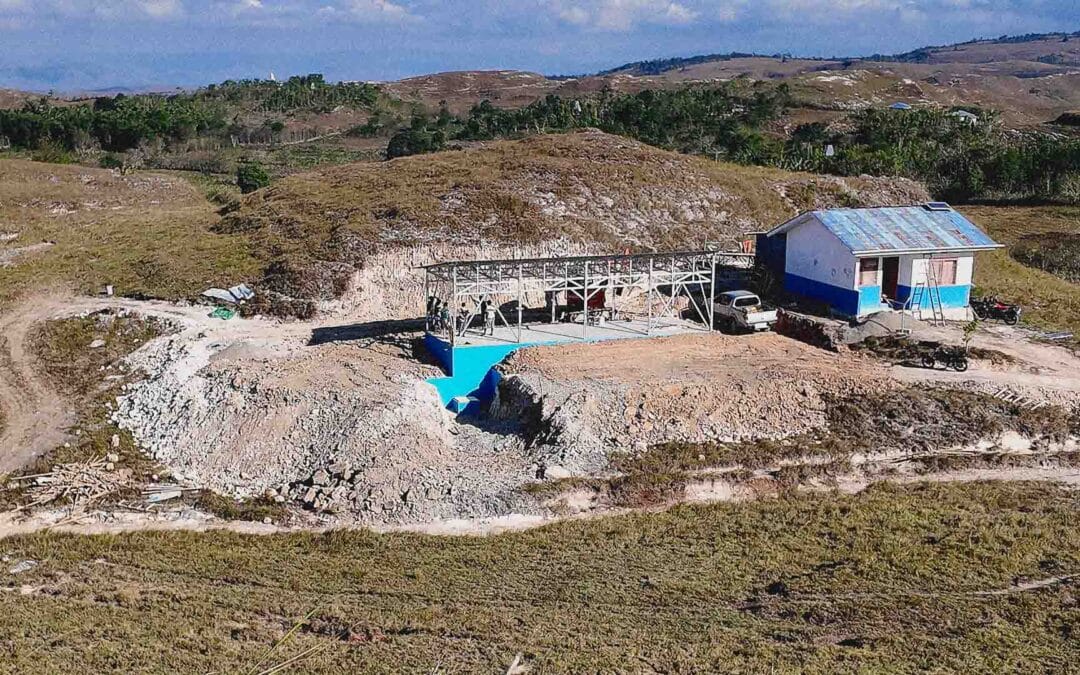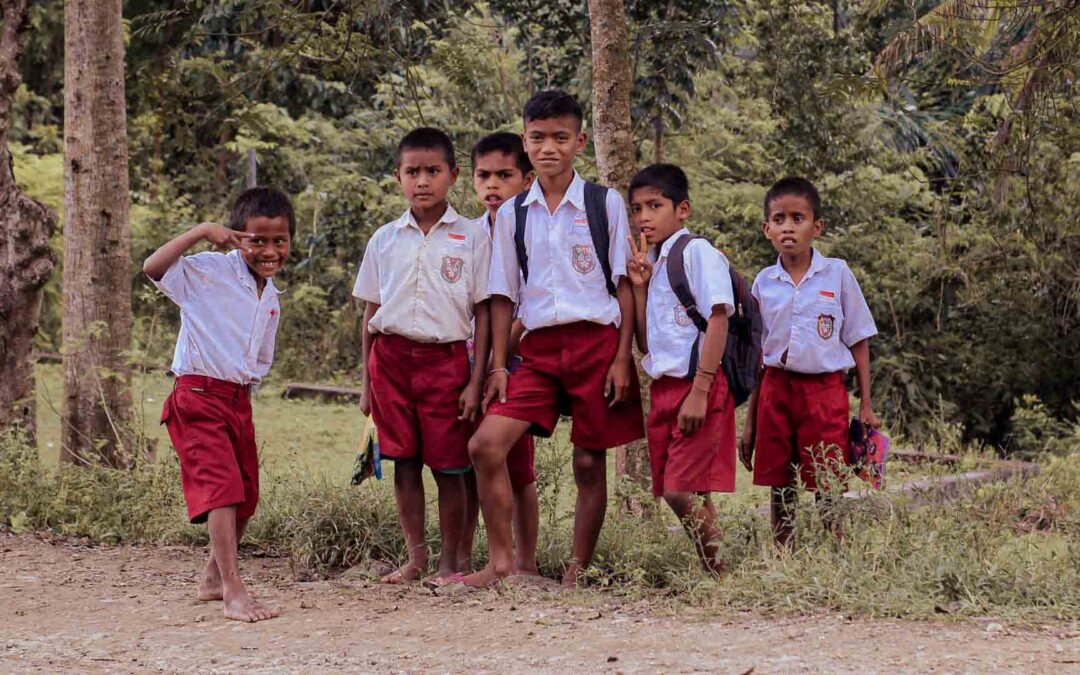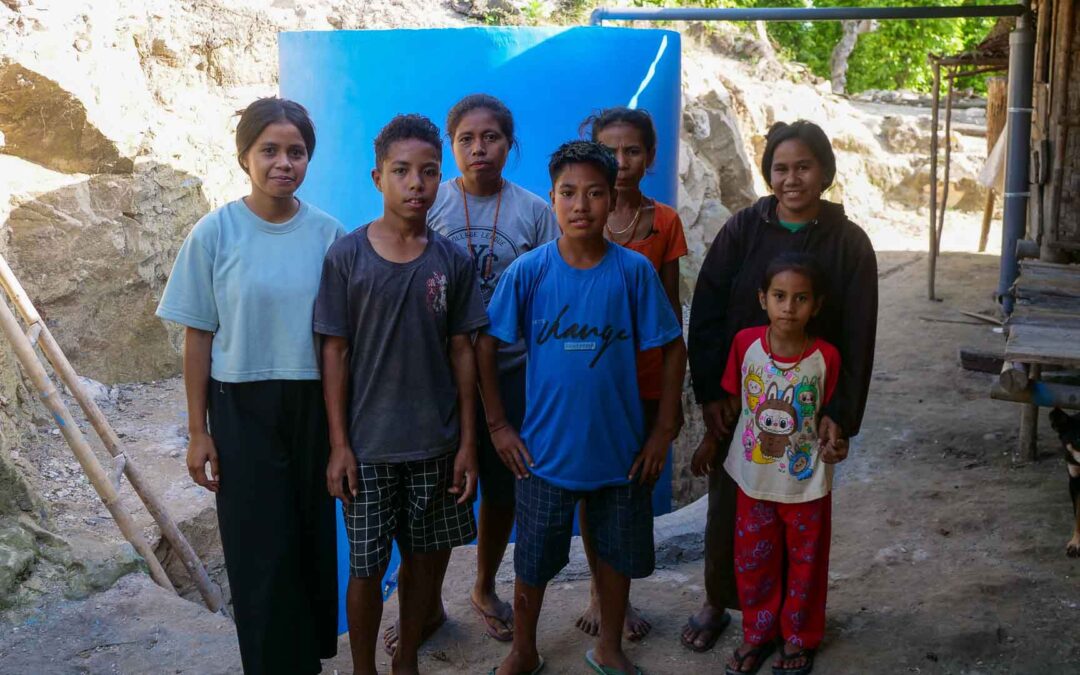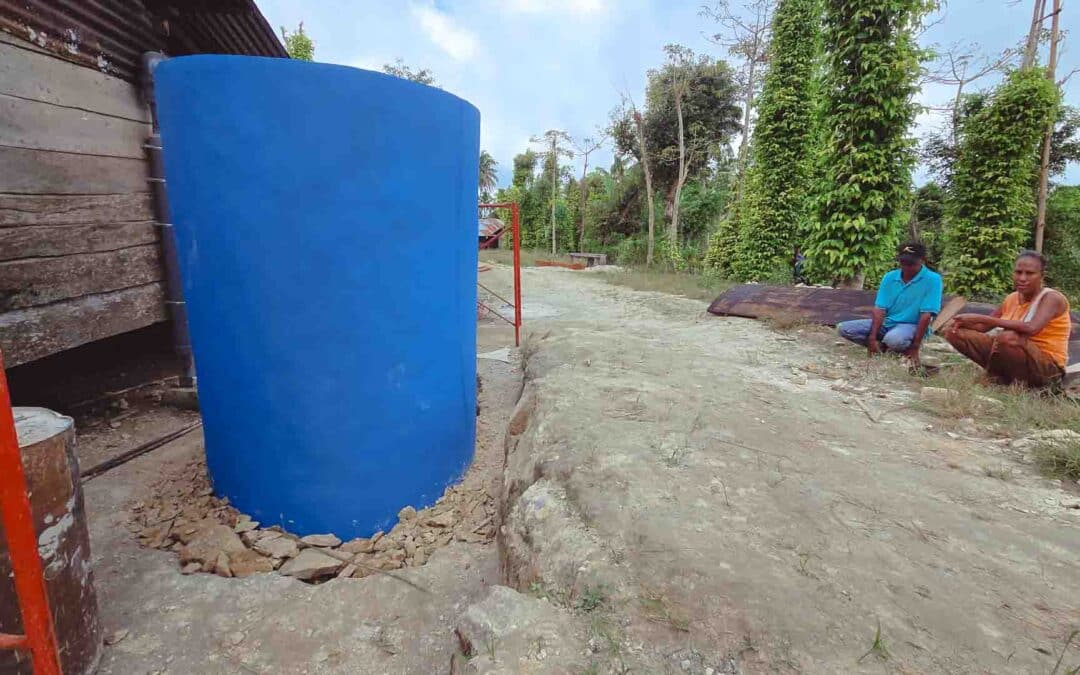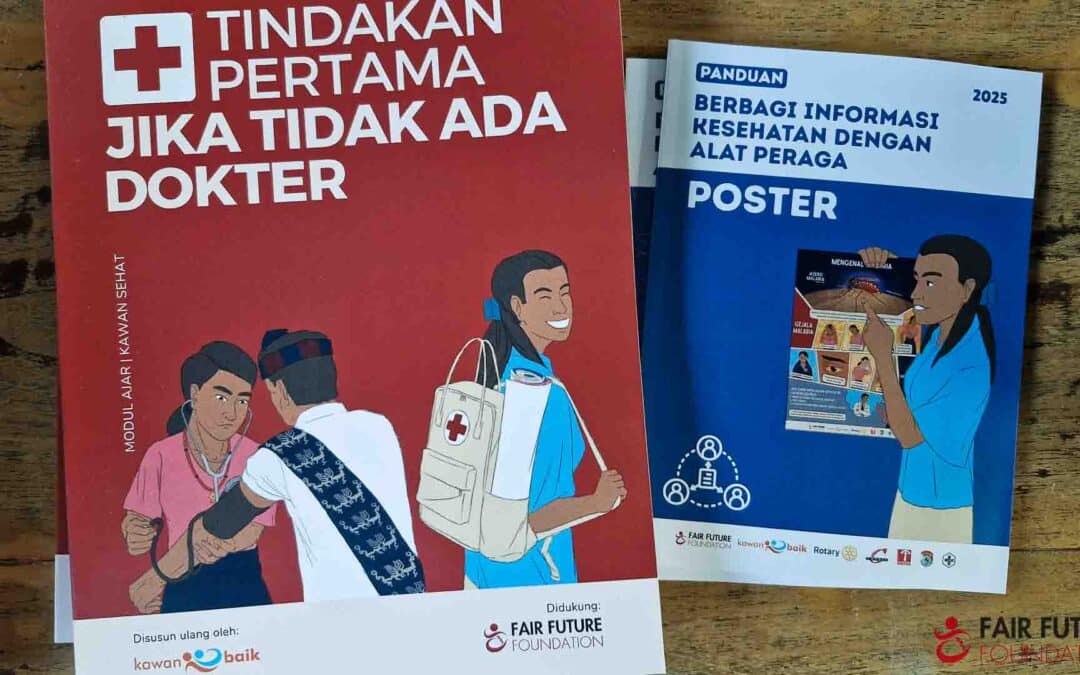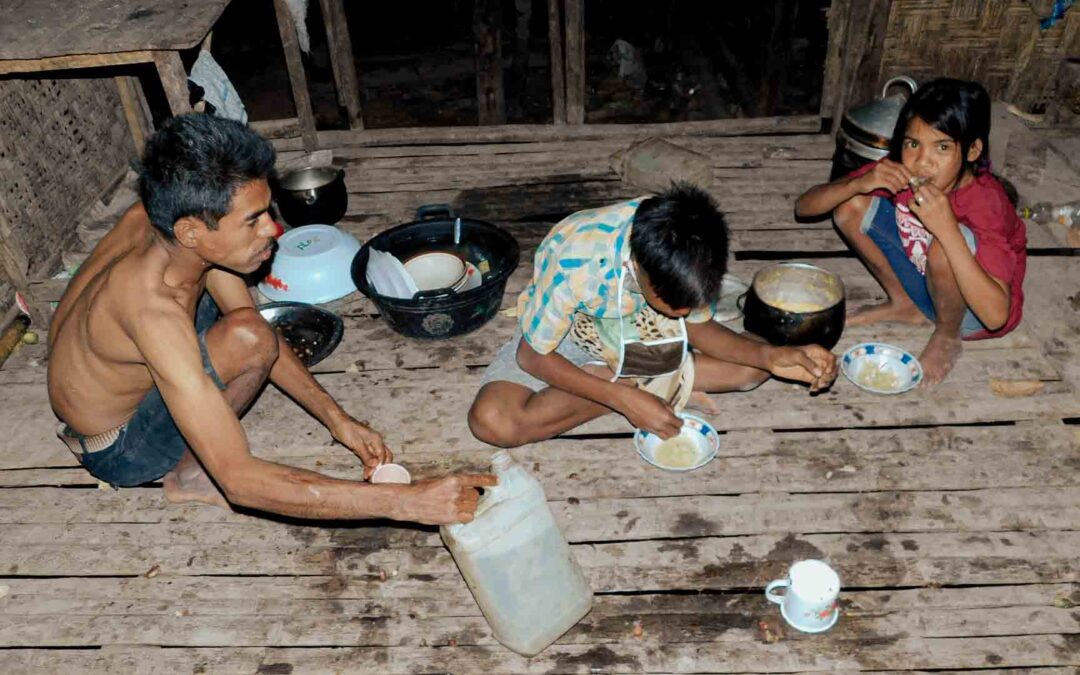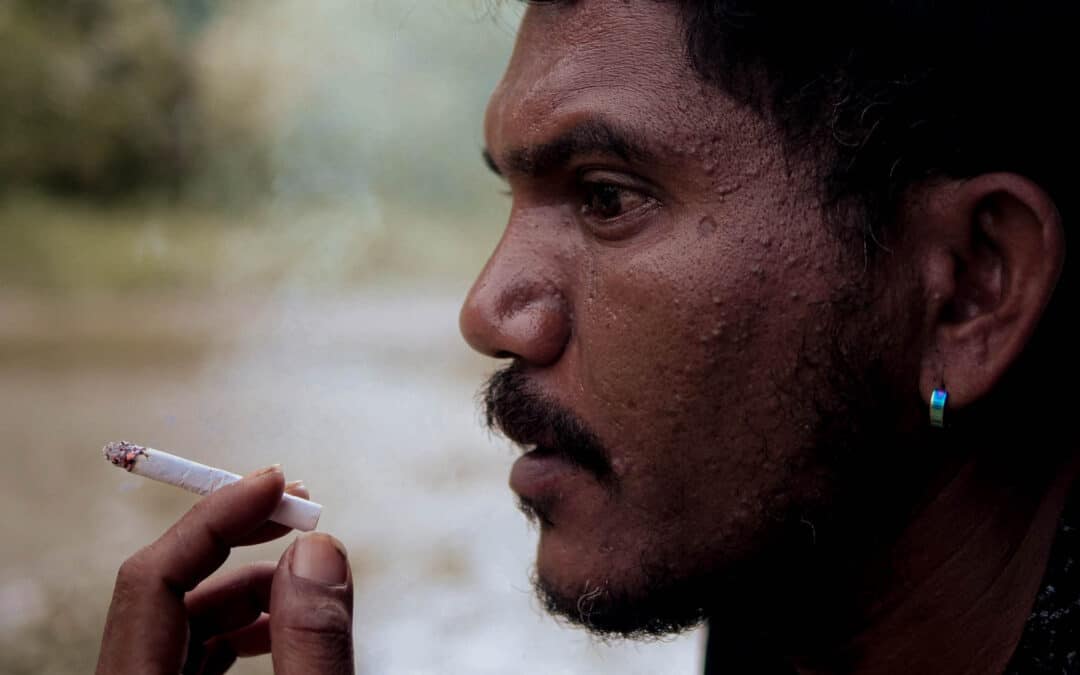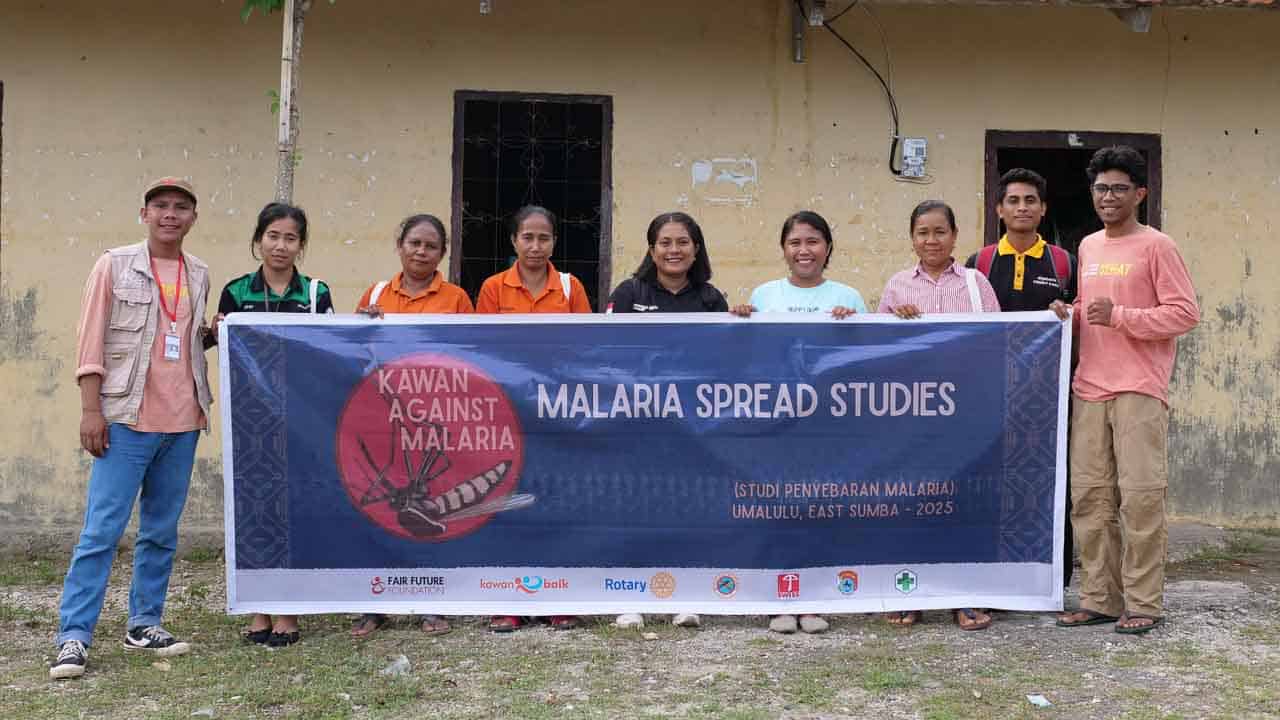Kanatan, Desa Mondu, East Sumba (NTT). A moment with the children of the villages of the region.
Their names are Amelisa, Emanuel, Adrian, Mbay and they are 13 years old. An interview in one of the classrooms at the school, which has no access to water.
These children are accompanied by a teacher, Umbu Krian, one of the friends of Fair Future Foundation & Kawan Baik Indonesia with whom we explore the villages of the region and define the families’ needs in terms of access to food, clean water and educational conditions, access to school.
Why do Fair Future and Kawan Baik work above all to restore quality of life to these families? We have always been improving the health of people and children through medical and surgical treatments, prevention campaigns and local information.
But without water or without access to a source of drinking water, it is illusory to want to improve the lives of these thousands of families. This is why we are developing #waterconnections access to drinking water programs, which aim to provide access to water in quantity & quality in many regions where drinking water does not exist or very rarely exists.
These two hours of discussion and exchanges in order to better understand the impact of the lack of water on children at school, their feelings, their occupations outside of school.
They explain their extreme fatigue, their difficulty concentrating, learning difficulties also linked to the lack of food at home. Some of these children do not eat enough, have nothing in their stomachs before having to walk several kilometres to go to school. Yes, these kids are there, but also their teachers sometimes have to walk 5-6 kilometres to go to school. And very few have access to a water source of any quality near their homes. All of them overall drink less than 3 glasses of water per day, i.e. less than 0.75 litres.
These children also explain to us that most of them cannot wash every day but once or twice a week at the most. That they are often sick, suffer from stomach aches, diarrhoea, cough. The weather is extremely hot here, so they should hydrate a lot more. Maize crops are devastated by pests and families’ incomes do not always allow them to buy vital consumer goods such as rice. One meal a day is not enough for children!
This information allows us to set up actions that also meet the real needs of children and their families, as we are doing in parallel in different regions of East Sumba.
Children in the tropics should drink more than others
A child loses depending on his age between 0.5 & 1.4 litres of water/day. These losses vary according to ambient temp, air dryness & activity (going to school on foot for the most part). These water losses through the skin, breathing should be compensated, they are not always.
- Child from 6 to 12 months: 0.9-1L/day – 0.6L/day in a non-tropical environement;
- Child from 13 to 24 months: 1.2L/day – 0.8L/day in a non-tropical environement;
- Child from 4 to 8 years old: 1.6L/day – 1.2 L/day in a non-tropical environement;
- Child from 9 to 13 years old: 2L/day – 1.4 L/day in a non-tropical environment;
Every year, millions of people die of diarrhoea because of unsafe drinking water.
The prevention of diarrhoea is largely possible and we could, for example, prevent the death of millions of thousands of children under the age of 5 each year if we fought against these risk
factors.
- Water is essential for life, it constitutes about 60% of our body weight for an adult;
- The bodies of babies are made up of about 75% water, and those of children 70%; therefore, their water needs are very high.
- Water represents about 2/3 of the weight of the cells;
- Water is a medium for chemical reactions, it is both a reactant and a product of metabolism;
- Water is in charge of maintaining a stable body temperature, despite external conditions. The trace elements present in the water are responsible for the electrolyte balance of the intra and extra-cellular environments.
Illnesses linked to improper water consumption
Drinking contaminated water can lead to serious health problems. Cholera, diarrhoea, dysentery, hepatitis A, typhoid, scabies, onchocerciasis, schistosomiasis, trachoma, typhoid and paratyphoid fevers, hepatitis, malnutrition and poliomyelitis, significant metabolic fatigue causing disorders of all vital systems, to death.
In the long term, consumption of water loaded with heavy metals, pesticides, nitrates and other chemical components such as arsenic are likely to cause serious congenital malformations in newborns: Limb deformation, hydro-encephalitis and other physical or mental disabilities.
#fairfuturefoundation #kawanbaik #kawanbaikberbagi #wateraccesss #cleanwater #truckoflife #healthyfood #healthylifestyle #swissngo #donateforfairfuture #donate #shoolaccess #healthatschool #wateraccess #safewater #cleanwater #airbersih #drinkheathywater #heatlhierlife #waterforlife #waterforall #ruralareas #sumbatimur #NTT #Indonesia


